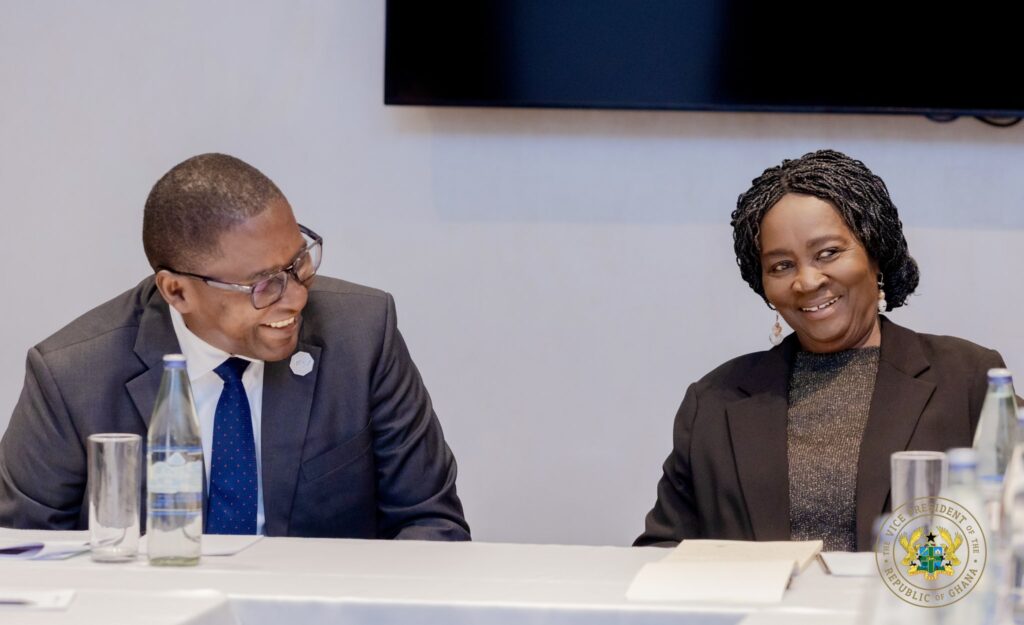Vice President Jane Naana Opoku-Agyemang has underscored the urgency of fair and collective global action on climate change during a bilateral meeting with H.E. Selwin Hart, Special Advisor to the UN Secretary-General on Climate Action and Just Transition.
The Vice President first conveyed Ghana’s gratitude for Mr. Hart’s condolences following the recent helicopter crash in Ghana before turning attention to the pressing need for climate cooperation in 2025, which she described as a pivotal year for global climate action.
Vice President Opoku-Agyemang emphasised the injustice of climate impacts, noting that poorer countries—who contribute the least to the crisis—often bear the heaviest burdens.
She pointed to rising sea levels, which have worsened migration and food insecurity in small island and coastal communities, as an example of the urgent need for shared responsibility.
“Climate change recognises no national borders.
Since many of its causes are man-made, we must find sustainable and fair solutions together,” she stressed.
The Vice President highlighted Ghana’s ongoing climate initiatives, including the installation of floating solar panels at the Bui Dam to diversify energy sources, and the role of the University of Energy and Natural Resources in preparing citizens to sustain climate-related policies.
She further called for a multidimensional Pan-African approach, where countries collaborate by sharing strategies, scaling up adaptation measures, and advancing collective solutions.
Vice President Opoku-Agyemang also emphasised the need to reform the international financial architecture, warning that unsustainable debt servicing is diverting vital resources from education, healthcare, and climate adaptation.
“We need a holistic approach to climate, debt, and development challenges.
Fairness, equity, and accountability must guide global action if we are to achieve just and lasting solutions,” she said.
She urged the United Nations to amplify Africa’s voice on the global stage, ensuring that the concerns of vulnerable countries remain central to international climate negotiations.
classfmonline


